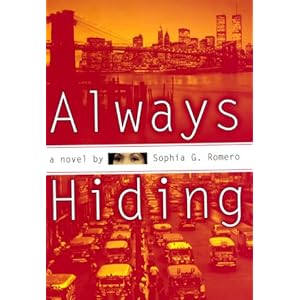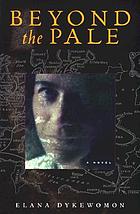Tagged with immigrants
Fire Horse Girl, the
author demographic:
author gender:
medium:
recommendation:
West of the Jordan
author gender:
book type:
medium:
author demographic:
Behind the Mountains
author gender:
medium:
recommendation:
author demographic:
book type:
free:
Cooked Seed
You may recall that I was enthusiastic about Min's first memoir, Red Azalea and her novel Wild Ginger. I expected to like Cooked Seed twice as hard. It starts more or less where Azalea leaves off--at Min's emigration to the US. Somehow, even after the stories of Cultural Revolution privations, cruelties and humiliations in the first part, Seed is harder to take. I guess because you can blame Min's problems on her, or maybe because you have to blame some of her problems on the United States.
author gender:
medium:
author demographic:
Dancer Daughter Traitor Spy
What a disappointment this book is. Great title, great elements--a clairvoyant teenage dancer from the USSR relocated to Brighton Beach--and there's not enough dance, the psychic moments are easy to miss, you don't care about the characters, and the whole spy/traitor thing--whatever. The one good part of the story is 1982-83 Brighton Beach. Also the cover is attractive.
author gender:
medium:
Anya's Ghost
author gender:
medium:
Always Hiding
author demographic:
author gender:
book type:
medium:
Something to Declare
Although I love Alvarez's novels, I found her book of essays to be a little meh. In fact, I stopped just before the halfway point. It might be zines' fault. I've read a lot of similar themed essays (about feeling half in one world and half in another, due to immigrant status, mixed race identity or the loss of one's native language) in dozens (hundreds?) of zines.
author gender:
medium:
author demographic:
book type:
free:
Beyond the Pale
This is such a Rivington Street readalike that it’s hard not to compare the two. Both begin in Russia around the turn of the 20th century and move to the Lower East Side after a pogrom. Both are about young Jewish female union workers and both have lesbian characters, and both depict the Triangle Shirtwaist Factory fire.
“You sound like a capitalist, all excited about machinery,” I said. “Aren’t you afraid that [linotype] will put printers out of work?”
“I was, but now I understand that the more books and pamphlets there are, the more men will read.” He dropped his voice. “And with this machine, we can make up our own pamphlets when the boss is out and melt the evidence before he comes back.” He leaned back in the sunlight, very pleased with himself.
The Williamsburg Bridge was its own sin. Its construction, Lena told me, made hundreds of people homeless when their buildings were torn down. A little like pogrom of progress, burning anything in its path, making Jews take to the roads with everything they owned on their backs, or move in with their relatives and landslayt, crowding more than we were ever crowded in Kishinev.



